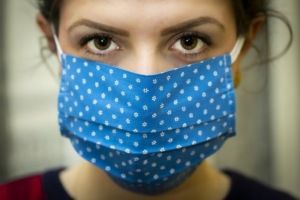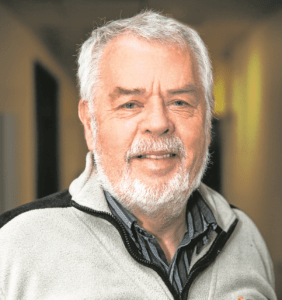Opinion
This Week’s Editorial: Is it over and out?
Ejvind Sandal
This article is more than 5 years old.

Covering our faces has been brutally demasked as a joke redefining irony for our modern age (photo: Pixabay)
We have recently been celebrating the 75th anniversary of the end of World War II and the liberation from the German Occupation – a reminder that our parents or grandparents could have told us a thing or two about what it was like to be locked up with closed borders and limits on our comings and goings.
The coronavirus brought the very worst limitations on our personal freedoms. It was unexpected and we were likewise unprepared – not just for the lockdown, but the scariness of the situation in Italy.
However, a few months later and we are now opening society again with most of us still alive. In reality there seems to have been no more deaths than what we would usually expect from diseases and traffic. In the meantime, ‘pandemic’ has become a household word.
The giant experiment
We are now recovering from a giant experiment in changed behaviour. The austerity legislation regarding handshakes and covering our faces has been brutally demasked as a joke redefining irony for our modern age.
Many companies were able to maintain productivity thanks to their staff working from home – a pat on the back for another successful nationwide IT implementation – and it has given us time to reflect on the un-necessary number of air miles clocked up by businessmen attending meetings they can participate in online.
In the absence of the fitness centres, many of us have returned to more natural ways of exercising. Home cooking has also come back in fashion, as families with children rediscovered the pleasure of living a simple life.
Now, during the reopening of society, we are seeing the lasting effects. Nobody needs to be reminded to wash their hands again, and alcohol is no longer only for drinking. We do not touch one another and especially not strangers. They get an elbow at best and we all sneeze on our sleeves.
Reopening our eyes
All this is only the beginning, as we are in for serious changes.
We can expect less air travel at a higher cost. We will see more virtual meetings, more home workplaces and less public transport.
We will see more social distancing and fewer people catching colds or flu. We will invest in the national health service, research and nursing homes.
We will accept climate control legislation to an extent that was unthinkable four months ago. We will increasingly do our shopping over the internet – a death knell for high streets already full of vacant leases.
We will realise that the EU is not a monster but a brutal necessity if we want to preserve the welfare community. And we will have to find ways to support a developing world struggling to cope with the coronavirus.
Finally, we have seen strong men like Trump and Putin become helpless as they feel their power slipping through their fingers and science overtaking their fake news. And that’s probably the most important change: we are finally opening our eyes to differentiate between facts and politics.

About
Ejvind Sandal
Copenhagen Post co-owner Ejvind Sandal has never been afraid to voice his opinion. In 1997 he was fired after a ten-year stint as the chief executive of Politiken for daring to suggest the newspaper merged with Jyllands-Posten. He then joined the J-P board in 2001, finally departing in 2003, the very year it merged with Politiken. He is also a former chairman of the football club Brøndby IF (2000-05) where he memorably refused to give Michael Laudrup a new contract prior to his hasty departure. A practising lawyer until 2014, Sandal is also the former chairman of Vestas Wind Systems and Axcel Industriinvestor. He has been the owner of the Copenhagen Post since 2000.










































